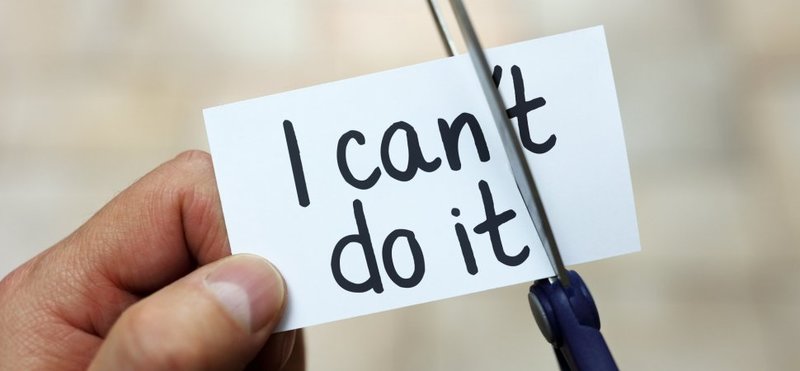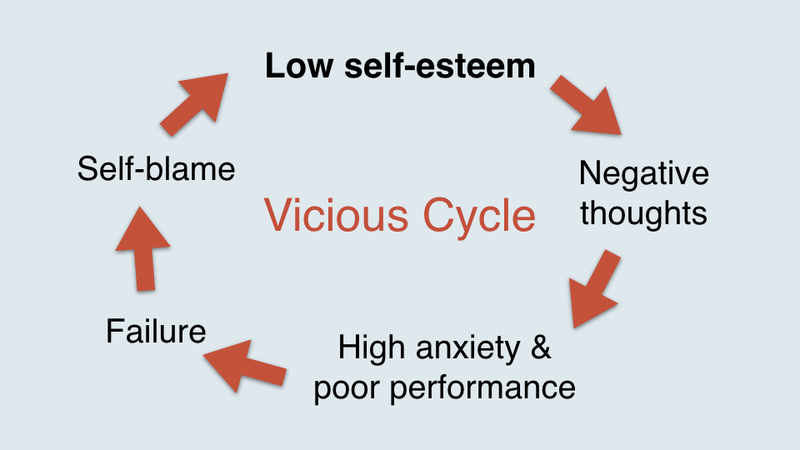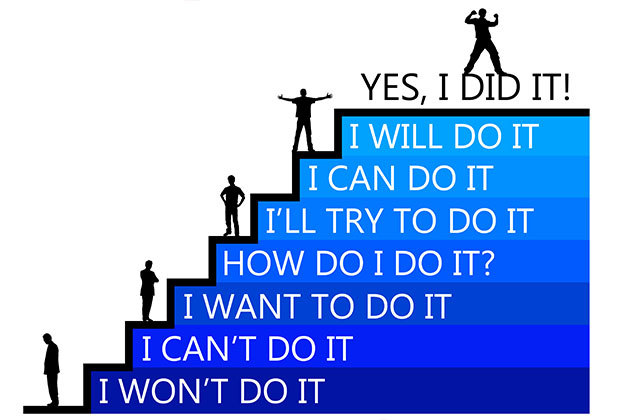Learning, Knowledge and Human Development MOOC’s Updates
Self-esteem; a major concern in a collectivist society
What exactly is it?
In psychology, the term self-esteem is described as a person's idea of how worthy he or she is or the value they set on themselves. In other words, how much you appreciate and like yourself. Self-esteem is frequently viewed as a personality trait and like all such traits it tends to remain stable. (Davies, 2007).
Why Self-Esteem Is Important
Self-esteem has an important role in the students life since it basically tends to determine the efficacy level of students. When a student believes to have a higher efficacy level they are more likely to indulge in extracurricular activities or even have good academic record. If a child does not believe he has the ability to work things out by himself, he would not be able to do so. (Corrigan et al, 2006) On the other hand though, having a healthy level of self-esteem can help you achieve because you move about life with a optimistic, assertive attitude and believe you have the ability to accomplish the goals you have set for yourself. (Watson et al., 2006) In many Asian countries low self-esteem is having negative effects on the grades of students
Variance in Self-Esteem
As discussed by Denice Hood the signs of a healthy and compatible personality are quite congruent to the signs of a student with healthy level of self-esteem. They also seem to have those “interpersonal skills” as mentioned by Dorothy Espelage. They show Confidence, Ability to say no and an optimistic outlook, among many other such traits. Though when they are not able to work up their self esteem they go crashing down under pressure.
In my area much focus is laid on social approval and thus to please others or to be accepted students have to go through a lot of stress. When they fail to fit into those gender stereotypical roles, they are shunned and continuously mocked at. Many kids thus suffer from a high level of anxiety due to continuous social comparison and leading to lower levels of self esteem.
The Student With Low Self-Esteem
The way a student views his or herself and the value they put by themselves have a huge impact on the way they interact, they learn, they respond and almost anything they do. It can also have a huge impact on the academic progress of the kids. (Perry et. al., 2013). Low self-esteem can reduce a student's motivation to learn, his capability to focus, and his readiness to explore various pathways. Positive self-esteem, on the other hand, is one of the determining factors of school success.
The need for counselling in South Asia
Many kids in southeast Asia (where I’m from) are forced by the standards of society to do as they are told, to let others determine their goals and the paths toward those goals. I myself have also been taunted at a lot for choosing psychology as my career of choice nonetheless I persevered. But I had a lot of support from my immediate family. Many kids are forced to take a career from a very parochial list of callings and they feel that others are justified in giving them the list to choose from. Much creativity and originality is lost amidst this struggle to be accepted and we end up with google copy pasted assignments and students who believe Wikipedia to be their ultimate source of valid information!
What can be done?
Counselling services are gradually becoming more popular mostly due to the constant threat of war and terrorist activities that we usually have to deal with. But either way it’s a light of hope that as things are getting better and better and the amount of terrorist activities reducing a lot then what we witnessed in our school years, hopefully the stress is going to be laid now on inclusive education and equity in education.
We really need to provide kids with a more cosmopolitan and broad-minded list of avenues they may take. We need to help them find their potentials and discover themselves. The role of educators and counselors being of paramount importance in this since they are the mediators and the guides through which students polish their skills.
Counselling guidelines
Though I’m not a professional counselor I have worked with professionals and researched in the area and have come up with a few strategies that may help building self esteem on an individual level. As per the Vectors discussed by Dr. Hood I would like to describe them bellow;
Vector 1:
In this stage the counselor needs to help and encourage the student to discover his or her own potential and start focusing on polishing it. Alongside with this, they need to focus on the self-image of the child that is to say that counselor and the child both should focus on increasing the value a student set by himself to a high yet realistic level.
Vector 2:
They need to figure out together how to manage social acceptance anxiety. Setting way too much store by what people say is unhealthy and the students needs to be realized of this fact and tutored into managing emotions accordingly.
Vector 3:
Since our society is already interdependent we need to regulate the levels of interdependence that people have with eachother. The student should learn to work in a group but at the same time use his originality and creativity to the fullest.
Vector 4:
Once the first three vectors have been properly worked on the student can learn to have health relationships that are not only based on compromise rather on mutual and equal contribution. Appreciation of self and od others would naturally tag along with an open and broad mind.
Vector 5,6 and 7:
These vectors are the ones that would result in a mature personality. A student who has healthy level of self-esteem and self-worth. Such students would learn to accept the individuality and unique skills of other rather than being judgmental and forcing social approval to be higher on the priority list than self-acceptance. The foundations of goals made by such students are based on their particular skills and are realistic and approachable thus there are higher chances of successes and less of a threat to their self-esteem.
In the given videos below you will find interesting and innovative way to boost you self-esteem!
References
Patrick W. Corrigan, Amy C. Watson, and Leah Barr. (2006). The Self–Stigma of Mental Illness: Implications for Self–Esteem and Self–Efficacy. Journal of Social and Clinical Psychology 8, 875-884
Wiggins, J., Schatz, E., & West, R. (1994). The Relationship of Self-Esteem to Grades, Achievement Scores, and Other Factors Critical to School Success. The School Counselor, 41(4), 239-244. Retrieved from http://www.jstor.org/stable/23900414
Baumeister, R. (2018). Self-Regulation and Self-Control. London: Routledge.
Zimmerman, M.A., Copeland, L.A., Shope, J.T. et al. (1997) A Longitudinal Study of Self-Esteem: Implications for Adolescent Development. Journal of Youth and Adolescence (26), pp: 117- 141. https://doi.org/10.1023/A:1024596313925
Rosenberg, M., Schooler, C., & Schoenbach, C. (1989). Self-Esteem and Adolescent Problems: Modeling Reciprocal Effects. American Sociological Review, 54(6), 1004-1018. Retrieved from http://www.jstor.org/stable/2095720
Joseph Ciarrochi Patrick C.L. & Heaven Fiona Davies. (December 2007). The impact of hope, self-esteem, and attributional style on adolescents’ school grades and emotional well-being: A longitudinal study. Journal of Research in Personality, Volume 41, Issue 6, , Pages 1161-1178
Robert H.Stupnisky & Raymond P.Perry. (February 2013). Looking beyond grades: Comparing self-esteem and perceived academic control as predictors of first-year college students' well-being. Learning and Individual Differences, Volume 23, , Pages 151-157





In my opinion a passionate and inspired educator and mostly an experienced one, has the power to build up a student's self esteem by constantly reminding him of his hidden potential and encouraging him to go step by step discovering their true talent.We can't ask the same from all the students and this is a key factor of students having such low opinion on themselves. It's like asking an elephant, a fish and a monkey to climb on a tree and then evaluate their performance...! Kids have their own unique talents and we as teachers should have the patience and persistence to help them discover them. This is the best way for children in their school years to build their self esteem to a level that pushes them to become the best version of themselves.
its a great article on self esteem . self esteem is a very important concept for personal development and without it the journey to success in life is never completed .